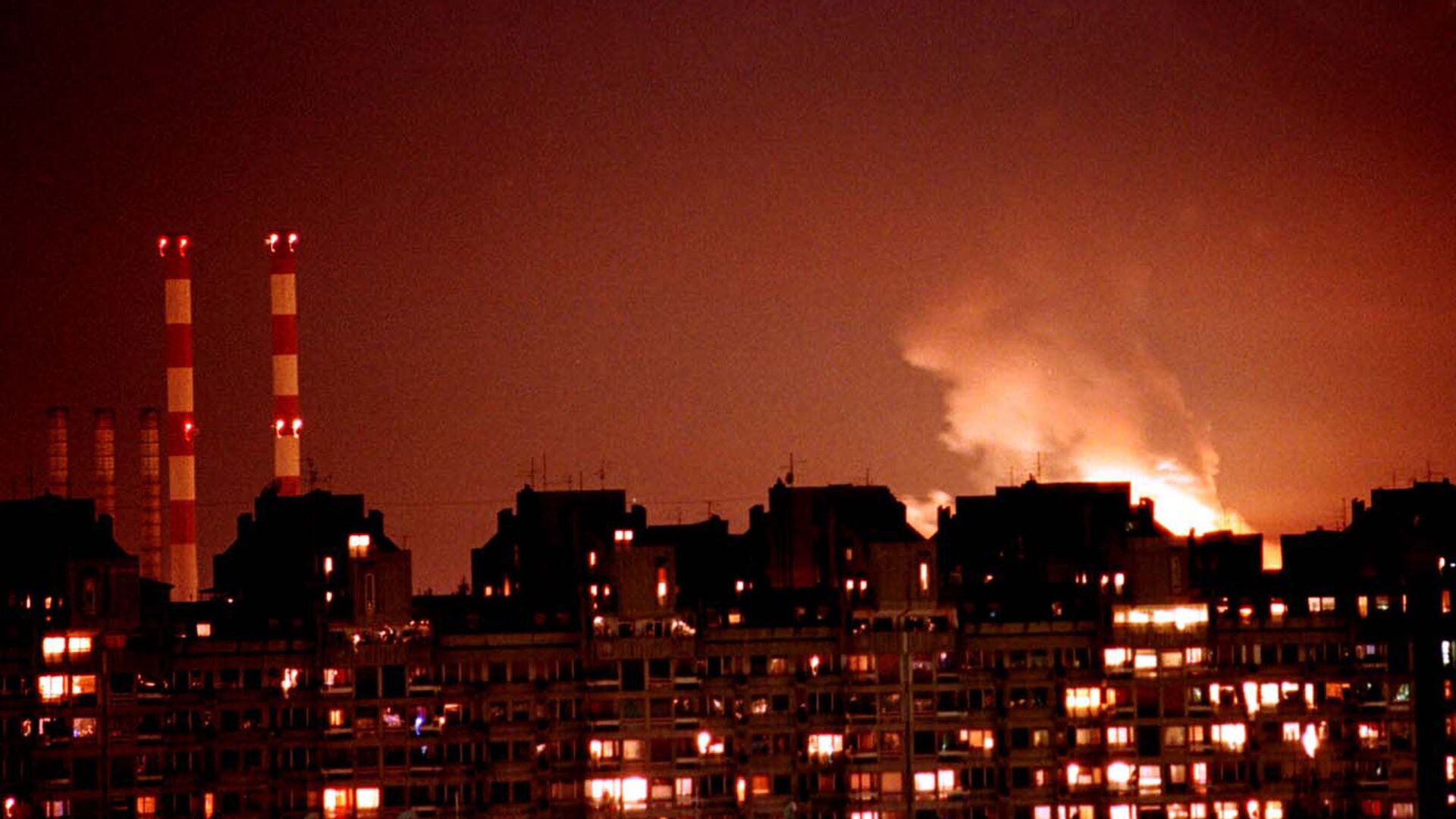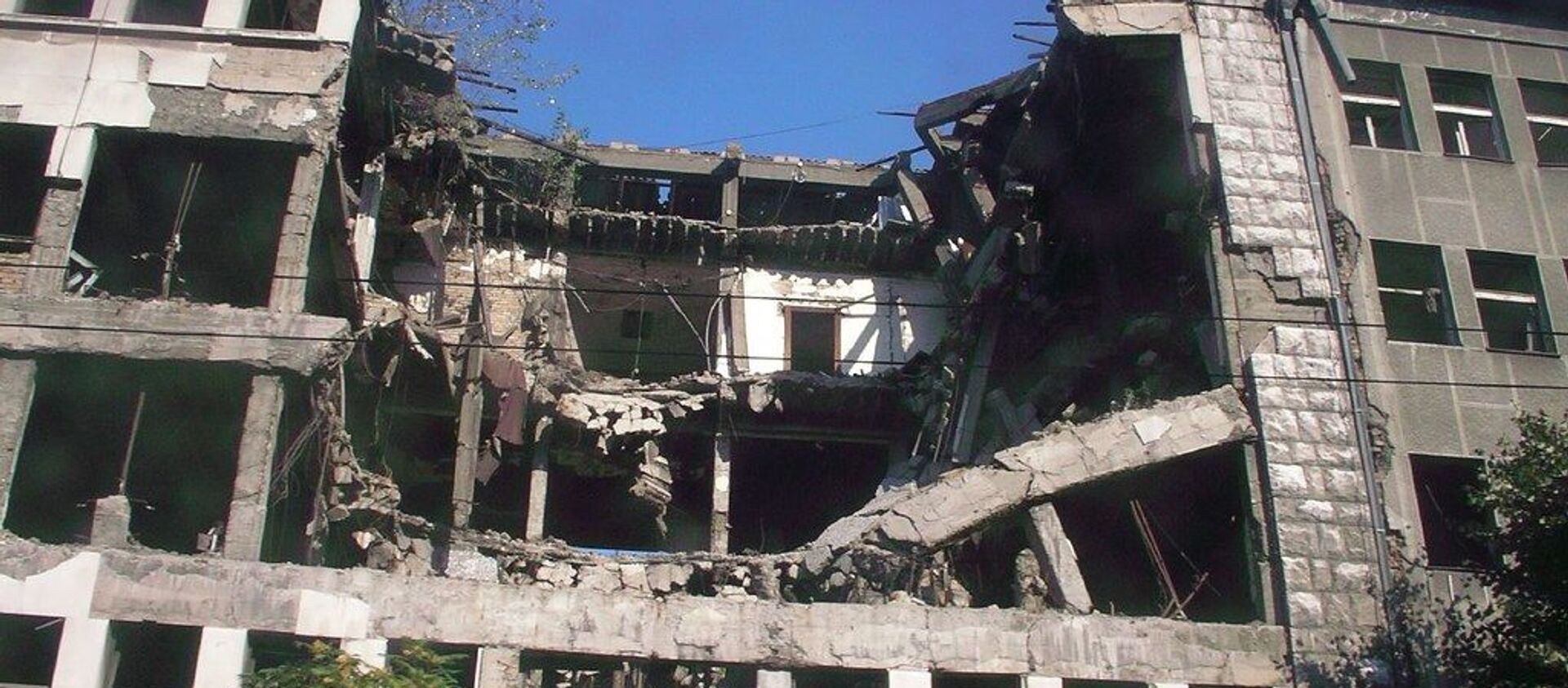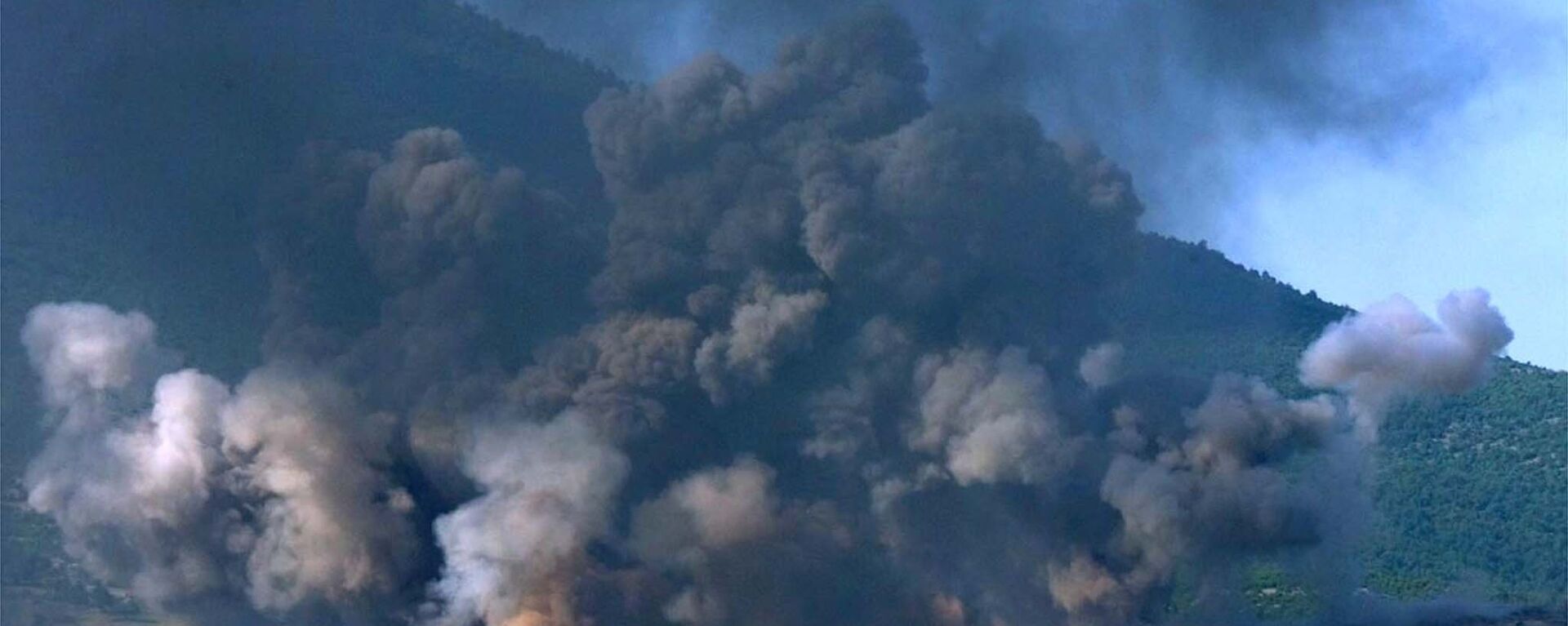https://sputnikglobe.com/20220324/serbian-oncology-institute-chief-nato-bombing-caused-environmental-disaster-affecting-all-of-europe-1094160287.html
Serbian Oncology Institute Chief: NATO Bombing Caused Environmental Disaster Affecting All of Europe
Serbian Oncology Institute Chief: NATO Bombing Caused Environmental Disaster Affecting All of Europe
Sputnik International
During its 78-day bombing campaign in 1999, NATO aircraft dropped at least 15 tonnes of depleted uranium (DU) weapons on Yugoslavia. In addition to the Balkan... 24.03.2022, Sputnik International
2022-03-24T18:58+0000
2022-03-24T18:58+0000
2022-03-24T19:12+0000
yugoslavia
nato
bombing
https://cdn1.img.sputnikglobe.com/img/107337/27/1073372705_0:86:2000:1211_1920x0_80_0_0_c2187e88dc0a918024ed90739d9b7937.jpg
The NATO bombing of Yugoslavia had a devastating impact on the region’s ecology, with the use of depleted uranium weapons, combined with attacks on chemical plants and hazardous industrial facilities creating an environmental disaster affecting the whole of Europe, Serbian Institute of Radiology and Oncology director Dr. Danica Grujicic has told Sputnik.Serbian victims of the 1999 NATO's DU munitions began filing lawsuits against the alliance in 2021 and early 2022. Victims and their families are seeking the same level of compensation that Western European servicemen who got high doses of radiation while serving near radioactive ammunition receive.Serbian President Alexandar Vucic has attributed the use of depleted uranium weapons to a dramatic increase in cancer rates, particularly among children whose parents were born in 1990 and onward.Serbia suffers from one of the highest cancer rates in Europe, with nearly 60,000 new oncology patients diagnosed each year. The country’s cancer rate among children is feared to be 2.5 times above the European average, and about 20,000 people die from various cancers every year.Along with high cancer rates, doctors in Serbia have reported an alarming rise in infertility, autoimmune diseases and mental disorders over the past two decades, including post-traumatic stress and other psychological problems associated with the bombings.Grujicic says further research is required to evaluate the true scope of the consequences of NATO’s aerial bombardment.Thursday marked the 23rd anniversary of the Western military alliance’s bombardment of Yugoslavia. At least 2,000 civilians were killed in the operation, with another 12,500 injured. Up to $100 billion in economic damage was caused by the strikes, with tens of thousands of residential buildings and homes, hundreds of kilometers of road and rail infrastructure, and dozens of hospitals, schools, airports, cultural monuments and bridges destroyed.
https://sputnikglobe.com/20200605/french-court-people-die-of-depleted-uranium-irradiation-in-kosovo-1079531665.html
https://sputnikglobe.com/20220324/how-us-nato-illegal-bombing-of-yugoslavia-undermined-rule-of-law-in-the-world-23-years-ago-1094157612.html
yugoslavia
Sputnik International
feedback@sputniknews.com
+74956456601
MIA „Rossiya Segodnya“
2022
News
en_EN
Sputnik International
feedback@sputniknews.com
+74956456601
MIA „Rossiya Segodnya“
Sputnik International
feedback@sputniknews.com
+74956456601
MIA „Rossiya Segodnya“
yugoslavia, nato, bombing
yugoslavia, nato, bombing
Serbian Oncology Institute Chief: NATO Bombing Caused Environmental Disaster Affecting All of Europe
18:58 GMT 24.03.2022 (Updated: 19:12 GMT 24.03.2022) During its 78-day bombing campaign in 1999, NATO aircraft dropped at least 15 tonnes of depleted uranium (DU) weapons on Yugoslavia. In addition to the Balkan nation, the US and its allies have also used DU weapons in Afghanistan and Iraq, with contamination also reported at testing ranges in Japan, Italy and Germany.
The NATO bombing of Yugoslavia had a devastating impact on the region’s ecology, with the use of depleted uranium weapons, combined with attacks on chemical plants and hazardous industrial facilities creating an environmental disaster affecting the whole of Europe, Serbian Institute of Radiology and Oncology director Dr. Danica Grujicic has told Sputnik.
“If we had a nuclear power plant, NATO would have definitely attacked it, because they attacked every target constituting a danger to the surrounding environment. They knew that a local environmental catastrophe could be arranged by attacking an oil refinery or a chemical enterprise, and they attacked such targets deliberately,” Grujicic said.
Serbian victims of the 1999 NATO's DU munitions began
filing lawsuits against the alliance in 2021 and early 2022. Victims and their families are
seeking the same level of compensation that Western European servicemen who got high doses of radiation while serving near radioactive ammunition receive.
“The North Atlantic Alliance did not pay attention to civilian casualties. Everyone knows the famous conversation between former president of Yugoslavia Slobodan Milosevic and Finnish diplomat Martti Ahtisaari, who said that Belgrade would be razed to the ground with carpet bombing,” Grujicic said.
Serbian President Alexandar Vucic has
attributed the use of depleted uranium weapons to a dramatic increase in cancer rates, particularly among children whose parents were born in 1990 and onward.
Serbia suffers from one of the highest cancer rates in Europe, with nearly 60,000 new oncology patients diagnosed each year. The country’s cancer rate among children is feared to be
2.5 times above the European average, and about 20,000 people die from various cancers every year.
“We took the initiative to establish the medical and environmental consequences of the bombings with mathematical precision. According to data we received based on meteorological conditions at the time, the whole of Europe was polluted” via the attacks, Grujicic said. “The Europeans who rejoiced at the bombs falling on Belgrade and Serbia were themselves infected and did not even know what they breathed in, what they ate and drank.”
Along with high cancer rates, doctors in Serbia have reported an
alarming rise in infertility, autoimmune diseases and mental disorders over the past two decades, including post-traumatic stress and other psychological problems associated with the bombings.
Grujicic says further research is required to evaluate the true scope of the consequences of NATO’s aerial bombardment.
Thursday marked the 23rd anniversary of the Western military alliance’s bombardment of Yugoslavia. At least 2,000 civilians were killed in the operation, with another 12,500 injured. Up to $100 billion in economic damage was caused by the strikes, with tens of thousands of residential buildings and homes, hundreds of kilometers of road and rail infrastructure, and dozens of hospitals, schools, airports, cultural monuments and bridges destroyed.



